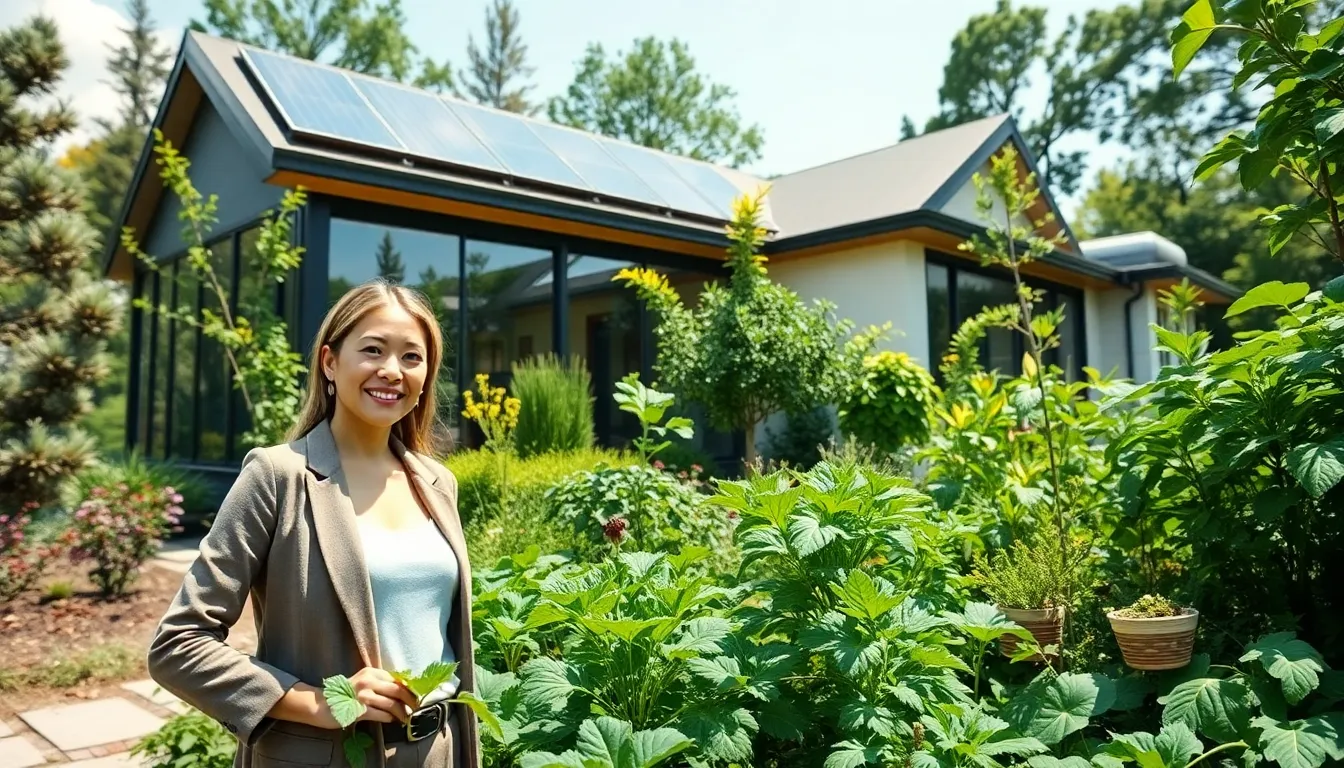In a world where Mother Nature is throwing some serious shade, it’s high time we learned how to live a little greener. From saving the planet to boosting your health and even your wallet, green living ideas are your ticket to a better tomorrow. So, whether you’re a seasoned eco-warrior or just dipping your toes into the sustainable lifestyle, this guide is here to serve up some hearty inspiration, without the pretentiousness. Grab your reusable bags and let’s dive deep into this green journey.
Table of Contents
ToggleBenefits of Green Living

Environmental Impact
Choosing a green lifestyle directly contributes to the preservation of our planet. Every action, no matter how small, counts. Reducing waste, conserving water, and utilizing renewable resources help lower greenhouse gas emissions. As a result, residents in green communities see improved air quality and reduced pollution. Our planet can breathe a little easier when we all commit to these changes.
Health Benefits
Living green isn’t just a fad: it’s a lifestyle change with tangible health benefits. Eating organic foods boosts immunity while reducing pesticide exposure. Also, incorporating physical activities like walking or biking instead of driving not only cuts down carbon footprints but also improves cardiovascular health. A greener lifestyle leads to fewer allergies and overall better well-being.
Financial Savings
Let’s be honest: who doesn’t love saving a little cash? Green living can significantly decrease utility bills. Energy-efficient appliances and eco-friendly home upgrades often lead to lower energy costs. Many individuals find that switching to a plant-based diet or shopping locally cuts down on food expenses. Sustainability isn’t just good for the earth: it’s good for the wallet, too.
Practical Green Living Ideas
Sustainable Home Practices
Consider transforming your home into an eco-friendly haven. Start by swapping out conventional cleaning products for natural alternatives. DIY cleaners using vinegar and baking soda can be incredibly effective, and wallet-friendly. Also, using cloth items instead of paper can substantially reduce waste.
Eco-Friendly Products
In the age of consumerism, checking labels is essential. Look for products made from recycled materials or those with minimal packaging. Brands that prioritize sustainability are not only setting trends, but they also encourage others to join the movement. From bamboo toothbrushes to biodegradable garbage bags, every bit helps.
Energy Conservation Tips
Switching to LED light bulbs might seem trivial, but it adds up. Turn off lights when leaving a room and unplug devices that aren’t in use. Utilizing smart home technologies can also help optimize energy use, ensure your thermostat is programmed to save energy when you’re not home.
Gardening and Urban Farming
You don’t need a huge backyard to start growing your own food. Container gardening and vertical farms offer solutions for urban dwellers looking for a green thumb. Herbs, tomatoes, and even lettuce can thrive in small spaces. Plus, nothing beats the taste of fresh produce right from your home.
Community Involvement & Education
Joining Local Environmental Groups
Becoming part of local environmental initiatives can ignite a passion for sustainability. These groups often organize clean-up drives, tree planting, and informative events. Connecting with like-minded individuals can provide valuable insights and resources for living green. Outreach efforts not only raise awareness but can also foster a sense of belonging.
Participating in Workshops
Keep the eco-friendly momentum going by attending local workshops or webinars. Many communities offer free classes on composting, recycling, and sustainable practices. These lessons can empower individuals to adopt sustainable habits in their own lives. Learning alongside others can spark motivation and engagement.
Advocating for Sustainable Policies
Supporting Local and Sustainable Businesses
Now more than ever, communities thrive when local businesses find support. Opting for local over chain stores helps reduce transportation emissions. It encourages sustainable farming and manufacturing methods. Plus, many local brands are more transparent about their practices, giving consumers peace of mind.
Promoting Green Initiatives in Schools
Education is critical when it comes to fostering awareness about sustainability. Advocating for recycling programs, garden initiatives, or even eco clubs in schools can change the mindset of future generations. Teaching kids about the importance of green living lays a solid foundation for lifelong sustainability practices.





